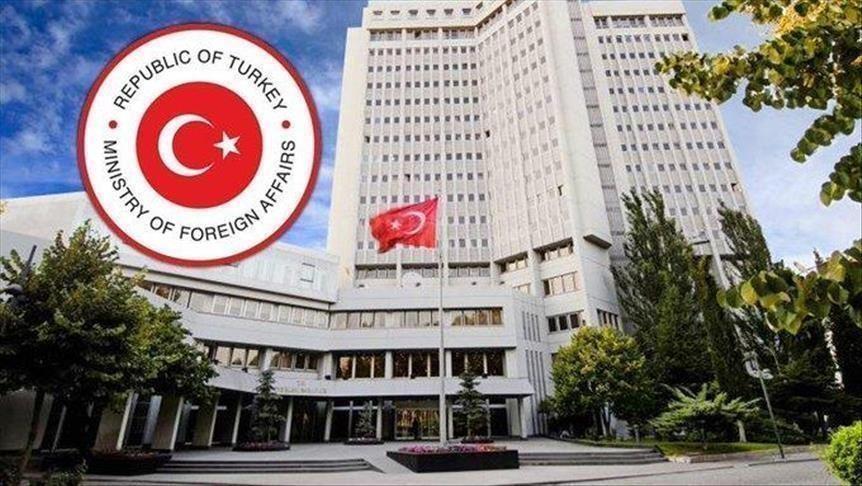
The Turkish Foreign Ministry said on Oct. 1 that a recent defense deal between Greece and France threatens to harm the NATO alliance.
“Greece’s claims on maximalist maritime jurisdiction and airspace are against international law,” Foreign Ministry spokesman Tanju Bilgiç said in a written statement.
“It is a vain hope that Greece can make us accept these claims, which are also questioned by the international community, by forming bilateral military alliances against Turkey in a way that harms the NATO alliance,” Bilgiç said.
“Such vain efforts,” Bilgiç said, “will further boost our determination to protect both our rights and the rights of the Turkish Republic of Northern Cyprus [TRNC] in the Aegean and Mediterranean.”
He also said that Greece’s policy of armament and isolation of Turkey is “problematic” as it will harm both itself and the EU and threaten regional peace and stability.
France and Greece announced this week a defense and security deal worth around 3 billion euros ($3.5 billion), which includes the Greek purchase of three French warships.
Greek Defense Minister Nikolaos Panagiotopoulos said that the Greek-French defense deal also covers the maritime jurisdiction.
Speaking on private Skai television late Sept. 30, Panagiotopoulos said that under the Greek-French agreement, “one country will help the other with military means if the need arises.’’
Asked if the mutual defense assistance also includes maritime and land, Panagiotopoulos responded that it would be valid for “the entire sovereign area’’ of Greece.
French President Emmanuel Macron said the frigate sale was not meant to be seen as a threat against Ankara, calling it a means to jointly ensure security in the Mediterranean as well as in North Africa, the Middle East and the Balkans.
France and Greece have forged closer ties in recent years, while each country’s relationship with Turkey has been strained.
The agreement came as tensions between Greece and historic regional rival Turkey have increased in recent years over gas exploration rights in the eastern Mediterranean and waters between the two countries.
Turkey, which has the longest continental coastline in the eastern Mediterranean, has rejected maritime boundary claims by Greece and the Greek Cypriot administration, stressing that their excessive claims violate the sovereign rights of Turkey and the Turkish Cypriots.
Turkey and Greece were at loggerheads over territory and undersea energy resources last year after Ankara sent several drillships to explore energy resources in the eastern Mediterranean.
Tensions have since eased in late 2020, and both countries have revived talks between high-level officials aimed at resolving issues.
The 63rd round of the consultative talks between Turkey and Greece will take place in Ankara on Oct. 6, the Foreign Ministry said in another statement on Oct. 1.
Turkish and Greek military officials launched talks to reduce the risk of conflict and accidents in the Aegean and Mediterranean under NATO auspices following months of tension. The two neighbors also resumed political discussions to resolve their differences.